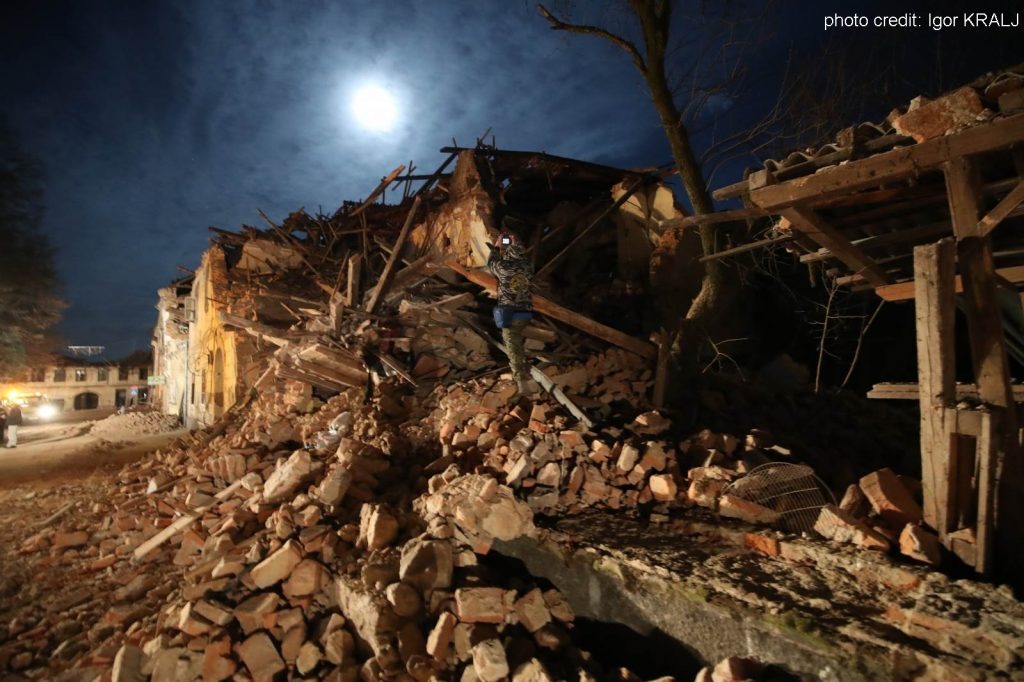
ASSOCIATION FOR THE PROTECTION OF HUMAN RIGHTS AND CIVIL FREEDOMS
HOMO association is a non-profit organization that works on the realization and promotion of human rights, and the development of democracy and the rule of law in the Republic of Croatia.


We monitor and supervise the consistent implementation of constitutional and legal norms and their harmonization with internationally accepted standards, and we educate, inform and sensitize the public about the importance of respect for human rights and civil liberties.
Guest appearance of the association "HOMO" in the show "Zapadna strana" of the TV station TV Nova. The emphasis of the association was on the provision of free primary legal aid.
In cooperation with Rade Šerbedžija, the HOMO Association made a documentary film describing the post-war situation in Lika.
Earthquakes, action and inaction. . .
After a ten-day series of earthquakes that left behind devastations of unimaginable proportions, taken out of their shoes and driven out of their own homes, the people of Banja lost what little they had. The ground, which does not stop shaking and demolishes roofs, chimneys, walls and facades, exposes all the hypocrisy of the almost thirty-year-old policy of neglecting the Banija region and its population. Politics stripped of the tremors we feel, and this time, as after the war or the floods of a few years ago, comes with the same rhetoric of renewal. Still, the earthquake experience showed us how the “reconstruction” of the late 1990s collapsed like a tower of cards. At the epicenter of the recent upheavals, there are a series of shameful policies of ethno-nationalism, racism and classicism that have pushed people from the Banija region into poverty and social oblivion.

This epicenter is deep underground and politically connected to horrors of unimaginable proportions on the other side of the border with Bosnia and Herzegovina, forty kilometers away, where people on the move - also with their shoes out and homeless - are left to fend for themselves. In addition to being dependent on compassion policies, they are also exposed to the systematic terror of the European Union's migration regime, which includes the "export" of people on the move from Croatia to Bosnia and Herzegovina, with beatings, humiliation and looting. Only a few hours after the most devastating earthquake, which smashed tons of tiles, bricks and concrete on the streets, interrupting seven lives, people on the move were transported by buses in unknown directions around Bosnia and Herzegovina to be returned and humiliated and returned to the same mud. a few days earlier the burning camp of Lipa. Rain and snow have brought even more difficult conditions for both of them, to which the mentioned policies, interested only in the production of unwantedness, are completely insensitive. And while donation trucks are pouring towards the epicenter of the earthquake from all over Croatia, neighboring countries and the European Union, we wonder why we do not provide such help to people from the burning camp in Lipa? Why again are some lives recognized as worth saving and others not?
Despite the importance of providing humanitarian support in this crisis situation, both of these situations are inherently political and require a political response. We find him in the same epicenter, in the practices of collective solidarity. It is not a saving, intervening, short-lived solidarity, based on appropriate patriotism, blind to the positions of power and the humanitarian industry that profit in such situations. It is not solidarity that divides according to borders and affiliations. It is solidarity that stems from the responses that people on the move, people in Banja and people who show solidarity with them persistently express in practice. It is a living solidarity whose fabric is built by the political power of change and which radicalizes policies of care and mutual support. It is a time of tectonic changes in understanding and living solidarity,
Trans-Balkan solidarity and co-signators:
Trans-Balkan solidarity and co-signators:
Epicentri solidarnosti naspram politika “obnove”
Epicentri solidarnostne politike nasproti politikam “obnove”
Епицентри на солидарност наспроти политики на „реконструкција“
